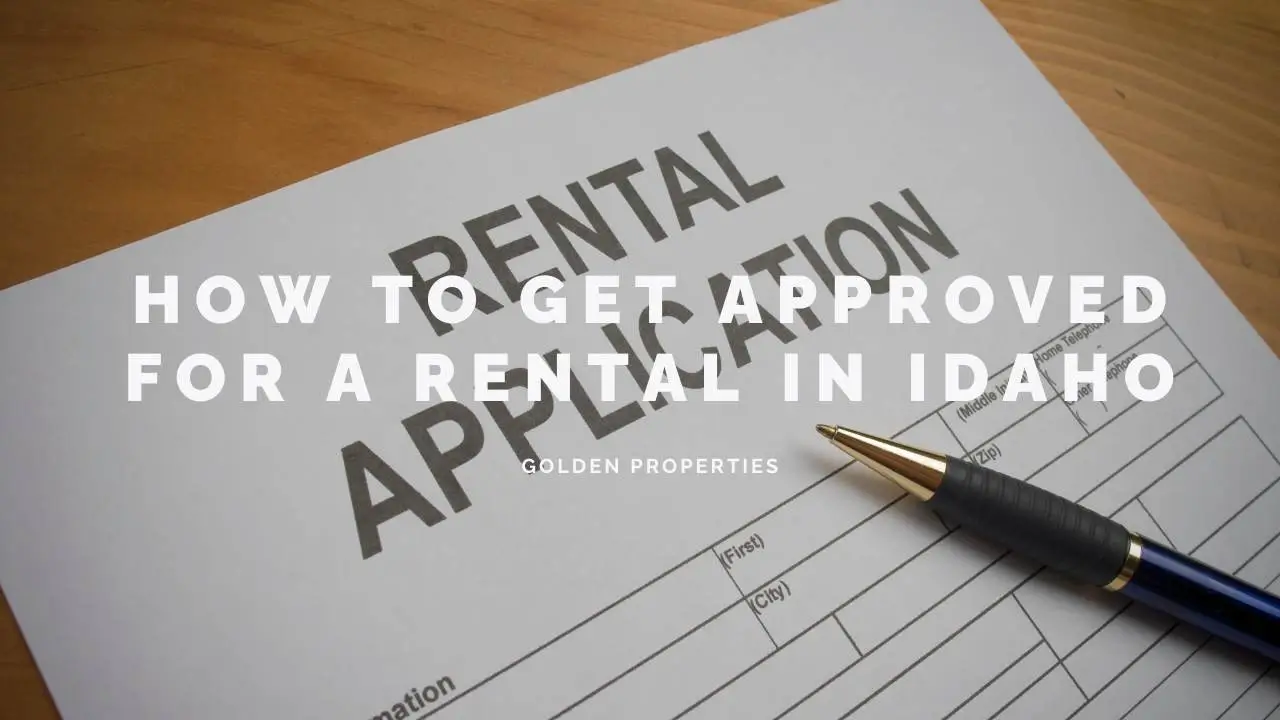Are you tired of paying application fees only to be told your rental application was denied? If so, you’re not alone. Many renters in Idaho, especially in popular areas like North Idaho, are finding it harder than ever to secure a rental. The market is competitive, and landlords are becoming increasingly selective. But don’t worry, there are steps you can take to improve your chances.
In this guide, we’ll walk you through what landlords in Idaho typically look for in a tenant and how you can position yourself as the ideal candidate. While every landlord and property management company may have slightly different criteria, these general tips reflect common standards in the industry.
Note: The information in this article is for general guidance only and does not reflect the specific screening policies of any one company, including Golden Properties. Always tailor your application based on the requirements of the property you’re applying to.
1. Income: Proving You Can Afford the Rent
One of the first things landlords look at is your income level. It’s not enough to have a job. Landlords want to know that your income is consistent enough to cover the rent comfortably.
The 3x Rule
Most landlords in Idaho follow the “3x rent rule,” which means your monthly income should be at least three times the rent. For example, if rent is $1,200 per month, you should be earning at least $3,600 before taxes.
This helps landlords ensure that you won’t be financially stretched to make your monthly payments and gives them confidence in your ability to fulfill the lease terms.
Be Ready to Show Proof
When you apply, you’ll need to back up your income claims with documentation. Here are some examples of what you might be asked to provide:
Recent pay stubs
Bank statements showing regular deposits
Tax returns (especially if you’re self-employed)
An offer letter (if you’ve just started a new job)
Being organized and having these documents ready to go can make a big difference.
2. Credit Score and Financial History
Your credit score isn’t just a number. It’s a reflection of your financial behavior. Landlords use it to assess how reliable you might be when it comes to paying rent on time.
What They’re Looking For
Most landlords will look beyond your credit score to evaluate the following:
Do you have a history of on-time payments?
Are you carrying a high level of debt?
Are there any collections or past due accounts on your record?
Generally speaking, a score of 600 or above is often considered acceptable for many rentals, although higher-end properties may look for scores above 700.
What If Your Credit Needs Work?
If your credit score is less than ideal, don’t panic. Here are a few ways to improve your chances:
Offer to pay a larger security deposit or multiple months’ rent upfront
Apply with a co-signer who has stronger credit
Provide a letter of explanation for past issues (especially if they were temporary or related to a hardship)
Showing that you’re working to rebuild your credit and are financially responsible now can go a long way.
3. Rental History: Stability Matters
Your rental history tells landlords what kind of tenant you’ve been in the past and what kind of tenant you’re likely to be in the future.
Positive Rental References
Landlords frequently contact your previous landlords to ask questions like:
Did you pay your rent on time?
Did you take care of the property?
Did you give proper notice when you moved out?
If you’ve had a good relationship with your past landlords, ask them if they’re willing to provide a reference. A strong endorsement can help tip the scales in your favor.
Red Flags to Avoid
Things that may raise red flags include:
Frequent moves in a short amount of time
Evictions or broken leases
Unpaid rent or property damage
If you’ve had issues in the past, be honest but proactive. Explain what happened, what you learned, and what you’ve done to ensure it won’t happen again.
Bonus Tips to Strengthen Your Rental Application
In addition to the three core areas above, here are a few extra tips to help you stand out from the competition:
1. Apply Quickly
In competitive markets like North Idaho, rentals can be gone within days or even hours. As soon as you find a place you like, submit your application quickly and completely.
2. Write a Cover Letter
It might sound unnecessary, but including a brief cover letter with your application can humanize you and make your case stronger. Use it to explain who you are, why you’re moving, and why you’d be a great tenant.
3. Be Polite and Professional
First impressions count. Be courteous in your communications with landlords or property managers. Show up on time for showings and respond promptly to any follow-up questions.
Final Thoughts
Getting approved for a rental in Idaho doesn’t have to be a guessing game. By focusing on the three main areas—income, credit, and rental history—and taking a proactive approach, you can drastically improve your chances of securing your next home.
The rental market may be competitive, but with preparation and the right mindset, you can put yourself ahead of the pack and avoid wasting time and money on unsuccessful applications.
Need help finding your next rental in North Idaho?
Golden Properties is here to guide you through the process. While we can’t guarantee approval, we can help you understand what landlords are looking for and how to put your best foot forward.


